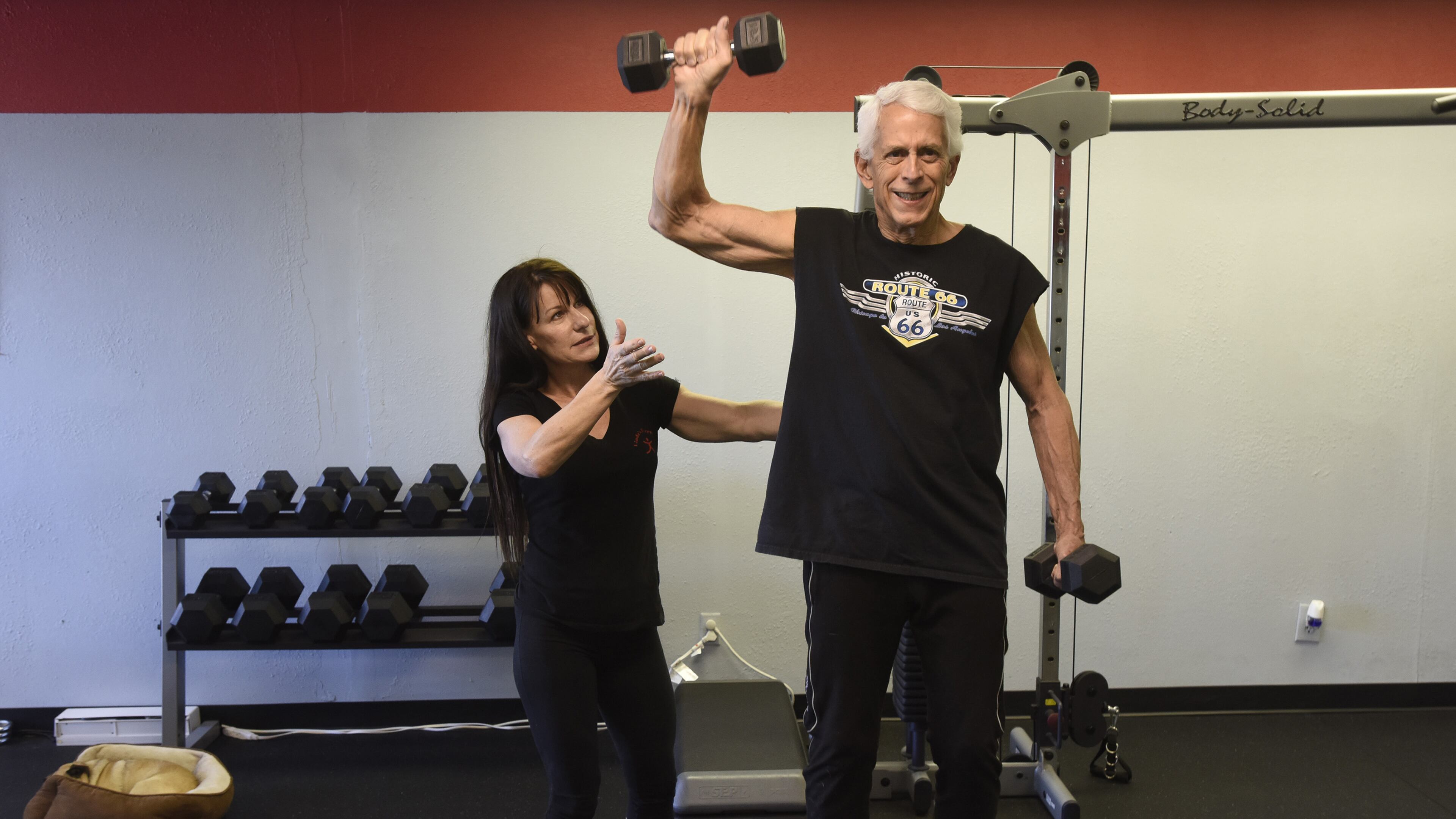New research shows you can retain muscle as you age

If you are 55 or older, there’s great news for you. New research has overturned much of the previous knowledge believed to be true about aging. For example, previous studies accepted that sarcopenia — the loss of muscle as we age — is inevitable. New studies show it is not. Preventing sarcopenia is now one of the most widely studied fields of research about aging.
A new study, which appeared in the journal Medicine & Science in Sports & Exercise, states that both “men and women over the age of 60 have to lift weights more often than younger adults to maintain muscle mass and muscle size.”
The study quotes co-researcher Marcus Bamman, PhD, as saying that the data “are the first to suggest that older adults require greater weekly maintenance dosing than younger individuals to maintain resistance training induced increases in muscle mass.”
In other words, a 30-year-old can build and maintain muscle faster than a 60-year-old. But if the older person works harder and more consistently than the younger person, they too will keep their muscles toned.
The National Institute on Aging was a partial sponsor of a recent 48-week study of the effects on muscles and strength of scaling back a weight lifting program. There were 70 adults recruited for the study. Nearly half were ages 60 to 75; the rest ranged in age from 20 to 35. For four months, everyone did the same exercises three times a week. All the participants increased the amount of weight they lifted; and all gained muscle and strength.
Participants were then divided into three groups for the next 32 weeks. One group did no exercise at all. The next group continued their training program, but only one day a week. The third did a reduced program of only one set of exercises once a week. Despite the lowered intensity of their training, at the end of the study, the younger group showed practically no change in their previous muscle gains.
But by the 48th week, those in the older group had lost muscle mass when they reduced their training. The researchers took this to mean that older people needed to lift weights more often to keep their muscle bulk as they age. The researchers also found that maintaining muscle mass is essential to healthy aging.
A study published recently in the journal ‘The Physician and Sportsmedicine,’ completed by researchers at the University of Pittsburgh, recruited 40 competitive triathletes ranging in age from 40 to 81. The purpose of the study was to prove or disprove that less active people suffer from a decline in their muscles, where the muscle becomes mixed with fat; a condition that doesn’t exist in more active folks.
The study of the competitive triathletes’ muscles showed little evidence of fatty deterioration. The study concluded, “Athletes over the age of 70 had almost as much thigh muscle mass as athletes in their 40’s.
Dr. Vonda Wright, an orthopedic surgeon at the University of Pittsburgh Medical Center, oversaw the study. She said, “We think these are very encouraging results. They suggest strongly that people don’t have to lose muscle mass and function as they grow older. The changes that we’ve assumed were due to aging and therefore were unstoppable seem actually to be caused by inactivity. And that can be changed.”
———
Wina Sturgeon is an active 55+ based in Salt Lake City, who offers news on the science of anti-aging and staying youthful at: adventuresportsweekly.com. She skates, bikes and lifts weights to stay in shape.

